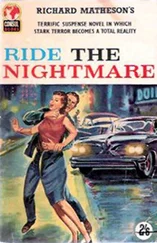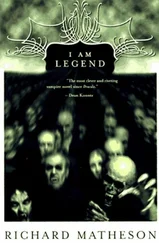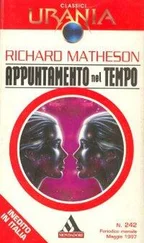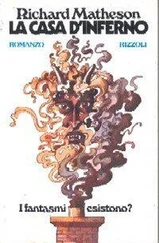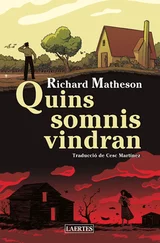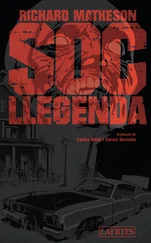A few words about my sister. Veronica was a truly gentle soul. Once, in a driving rainstorm, she picked up a bleeding puppy that had been struck (and deserted) by a speeding motorist. She carried it home—five blocks—in her arms. By a stroke of ill fortune, the Captain was not away that afternoon and ordered her to remove “that damned, whining beast” from the premises before it bled all over the handmade Chinese rug.
Only a hysterical, weeping fit by Veronica—and an atypical temperamental foot-stomping by Mother—not to mention a few choice verbal attacks by me, laced with impulsive profanities (for which I later paid a hefty price; I leave that to your imagination) persuaded the outgunned Captain Bradford Smith White, USN, to—stiffly—allow Veronica to take the shivering, silent—still bleeding—“mutt” to an unused corner of the cellar.
I went down there with her, disobeying the good Captain’s injunction to “go to your damned room.” (Another dereliction for which I paid hefty price number 2.) There I watched the dear, sweet, bless-her-noble-heart girl—still crying softly, gulping down body-racking sobs—care, with loving gentleness, for the puppy (she was, poor girl, a teenage Florence Nightingale), washing and bandaging, with household bandages, no less. (“Puppy needs them more than him. ” Revealing to me—as if I needed it—her detestation of our father.) Fixing the puppy’s cuts and bruises, then kissing its damp head, crying anew when the puppy licked her hand.
Happy ending? You want a happy ending? Skip it. In the early morning, Veronica rushed down to the cellar to see if the puppy was all right. It was gone. She ran to question Captain Bradford Smith White, USN, and Mother told her Father had gone for the day to discharge his naval duties—probably beating some sailor to death with a chain. But I digress.
Crying helplessly, Veronica, suspecting the worst (most logically), hurried outside. To find the puppy on the back porch, curled up in an uncovered cardboard box. Needless to say—I am vengefully pleased to say—it was still raining, and the puppy was shaking uncontrollably and dying. Which it did that afternoon. I would like to describe the burial ceremony conducted by a heart-stricken Veronica, but the memory is too painful to relive in detail.
One more Captain Bradford Smith White, USN, anecdote. One more black star in his Book of Swinishness . Its conclusion? He castigated Veronica (severely) for ruining a blanket, using a box of household bandages, and digging an unauthorized grave in the backyard soil and, further, conducting an “un-Christian” funeral ceremony without express permission from the Church. Was he kidding? No.
* * *
Veronica was never very healthy, much less robust. Mother drove her—a long, inconvenient drive—to a naval hospital for treatment. Captain You Know Who would not permit Veronica—or Mother or me—to be treated by a local physician. He was a naval officer (by God), and treatment for a naval officer’s family must (repeat, must ) by administered by a naval hospital or clinic. (By God.)
Veronica grew weaker by the year. By the time the influenza epidemic landed on the United States, she was primed for the blow, hardly resistant at all. Poor, dear, sweet Veronica. I still miss her and weep for her unhappiness.
The Captain had his brutal effect on me, mostly in my preteen years. A Pisces (it has been labeled “the trash bin of the zodiac”), I, too, cried a lot before I was fifteen. Then my rising sign, whatever it may be (actually, I know), must have risen strongly and declared itself, for I began to shut myself off from Captain B. S., USN. He no longer “got” to me. If I’d been the happy owner of a loaded pistol, I would probably (I do not say “undoubtedly”) have shot him many times over. For Veronica. For Mother. For myself. No guilt involved. I knew that much. More like a sense of grinning justification.
* * *
I have avoided, long enough, the transmission of my “terrible tale.” (Remember, of course, that it is, as well, a wondrous tale.) You know, already, that I have been too emotionally bound up to convey it for more than sixty years. So if I forget myself and allow my Arthur Black commercial overstatement to leak through, kindly take pity on the blind-eyed, money-seeking element in my elderly author persona. I promise you that what I am about to tell you did not ooze from my diseased brain. It happened.
* * *
Return with me to 1918. I was eighteen years of age. World War One was in full swing. Captain Bradford Smith White, USN, wanted me, naturally, to join the Navy; he would see to it that I got a “proper” position. Does it surprise you to read that I demurred? I enlisted in the army. I cannot adequately describe the intense pleasure I experienced when I witnessed the look of utter revulsion on his face when I told him the “good news.” (I was going to war for Uncle Sam!)
So there I was, an army enlistee, no doubt destined for a journey to France.
It was not the exact beginning of my nightmare-to-come, but it was certainly a good start.
On April 16, 1917, the United States declared war on Germany. What a “declaration” of war means, I have no idea. I suppose it means, “We will now fire shells and bullets at you and fully expect reciprocation.” Or, “You are no longer our friend, and we hereby declare that we regard you as our enemy.” Or some such nonsense.
On June 7, National Draft Day, I enlisted and eventually became a nonentity in the 111th Infantry, Twenty-eighth Division, AEF (American Expeditionary Force). I have already told you about dear old Dad’s reaction to my back-turning on the U.S. Navy. After I’d related the news to him, he retired to the bathroom, there to expel at least a two months’ supply (probably more) of bile at the displeasing information.
Later, I discovered that conscription applied to any young patriots between the ages of twenty-one and thirty-one. So I could have waited. What, and deprive myself of the pleasure of viewing the Captain’s face curl up with disgust? No, I did it at the right moment. So I could have been killed sooner. No matter. Actually, I could have been killed, anyway.
In July, I was shipped by train (I was merely a package to be shipped from pillar to post) to Camp Kearny in California, where I cut a dashing figure in my rumpled garb and Boy Scout hat, no leggings, three weeks in overalls. For sixteen weeks, I learned the skills of open warfare, part of which was trench warfare. General Pershing did not approve of it—he preferred offense attacks.
I was defined as a “rifleman.” Due to supply shortages, our rifles were made of wood; we got real ones only on the shooting range. We were also taught the “operation” of the bayonet. I came to the assumption that the victim of a bayonet insertion would require an operation, Major. We were also instructed in camouflage. As though it would be of value in the trenches.
Captain Bradford Smith White, USN, would have been gratified by the fact that there were no “Nigras” in my company; they served exclusively in a segregated regiment. They were later (Capt. would not have been gratified) completely integrated in the French army, issued French helmets, rifles, and other equipment. Those blacks who remained in the AEF performed such prestigious services as grave digging and onion peeling.
Why were we called “doughboys”? I was told that soldiers marching in Southwest deserts were covered with so much sweat-stained dust that they and their uniforms took on the appearance of adobe coating. “Adobe” was, presently, altered to “doughboy.” Probably not true, but as good as any explanation. The soldiers’ blouse buttons resembling lumps of fried dough? Dubious.
Читать дальше



